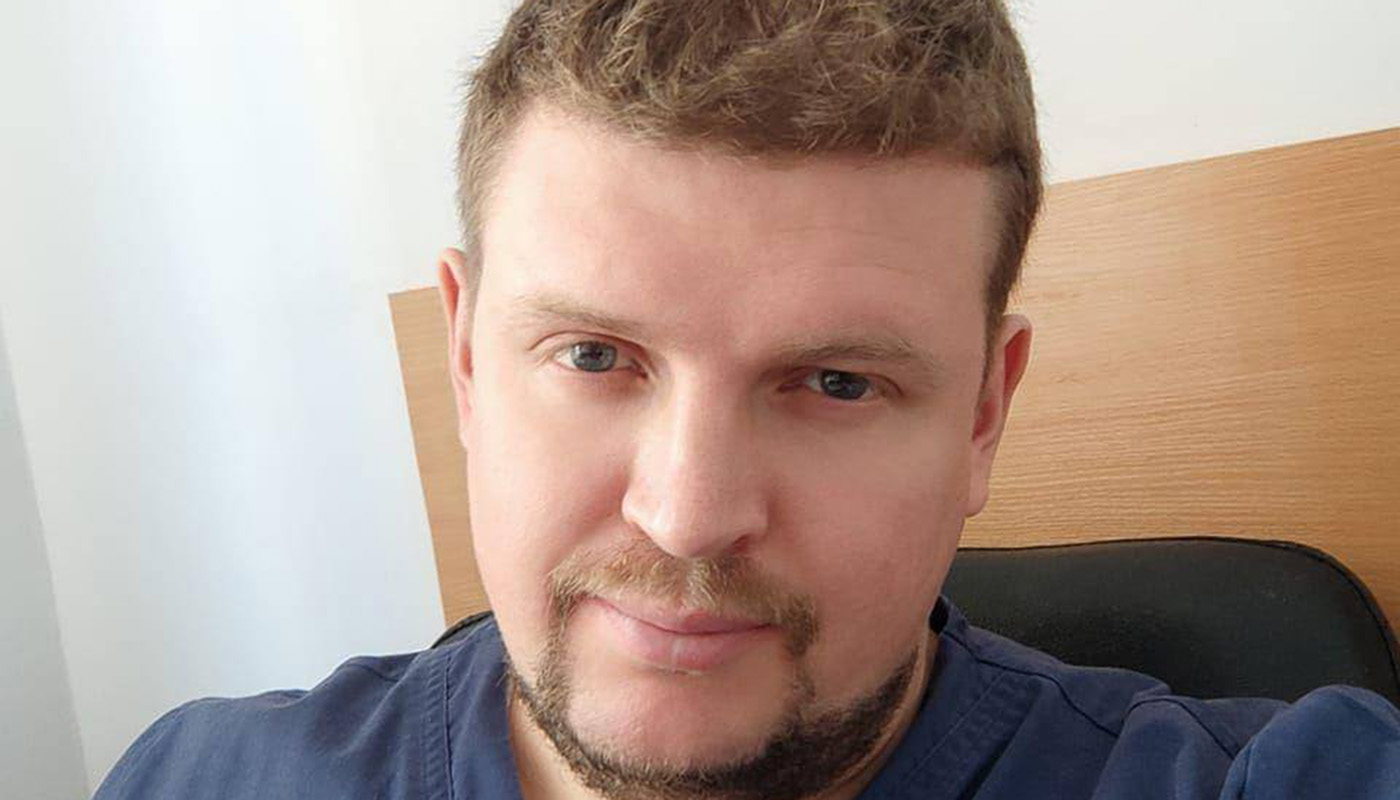The ongoing deadlock in US aid to Ukraine compels European nations to scrounge for every billion worldwide. Despite concerted efforts, gaps remain. Wether interruptions in Western aid have directly impacted frontline medical capabilities, Dr. DANIIL MYKHAYLOV reveales in an exclusive interview to Apostrophe. He acting chief physician of Kyiv City Clinical Hospital No. 10 and former military surgeon, underscoring the critical need for sustained international support.
- How significantly did challenges with Western aid impact the supply of essential resources like medicine and equipment to military and civilian medical facilities, as well as the provision of crucial assistance to wounded soldiers?
- I don't see a deterioration in the provision of medical facilities. Funding for medicine, surgeries, treatment, and rehabilitation—all these areas are secured by the budget. Hospital funding is received in full. Most of it comes in accordance with the fulfillment of contracts with the National Health Service of Ukraine (NHSU). While hospitals do have other sources of funding, as far as I know, there is no deterioration in provision.
Funding operates as follows: all civilian medical institutions in Ukraine have contracts with the NHSU for providing medical services under the medical guarantee program. The National Health Service receives funds from the budget according to the previously formed financial plan for the year. Based on contract terms and performance, the NHSU disburses funds to hospitals throughout the year. The system runs smoothly, with payments made in full and on time.
- That is, if Western funding has weakened now, then it can affect the situation in the medical field only next year?
- I don't think so. As far as I know, the NHSU is funded separately through a stable program, and everything remains steady there. Healthcare is a highly protected budget item. There can be numerous funding sources including tax revenues, sponsorship assistance, loans, and many other options. If the USA has currently suspended financial support, there are other sources available.
So, despite challenging times, the healthcare sector receives full funding. The allocated funds cover current operations—providing medications, supplies, staff salaries, and utility bills. However, there are occasional challenges with purchasing expensive equipment and undertaking capital repairs in medical facilities. Funds for these purposes are not always readily available to every facility.
- Are we highly dependent on foreign medical preparations and their supply?
- The situation is quite interesting. From my understanding of the market, foreign drugs, which cannot be replaced by domestic equivalents, account for approximately 10-20%—these are expensive and rare medications. The majority of medicines are domestically produced. However, most of the raw materials for them are imported. Raw materials come from China, India, Europe, and in this aspect, we are highly dependent.
Additionally, there's a constant need for imported consumables for foreign-made medical equipment. Many medical products from China are purchased, mainly because they are the cheapest. It's more profitable for businesses to buy from China and resell rather than establish production in Ukraine. Sometimes, a rather unpleasant issue arises: it's very difficult to find companies officially providing service for imported equipment already installed. Many disappeared at the onset of the war. All hospitals have foreign equipment. However, if something needs replacing, repairing, or adjusting, there may be problems.
- Due to decrease of the Western financial aid and luck of ammunition - have the number of wounded on our side increased?
- I don't have access to that statistic, but I see many wounded. Many are injured due to the widespread use of guided aerial bombs by Russian occupiers. One ton, one and a half tons, two tons of TNT—when those bombs hit, positions vanish. Only craters remain. I won't delve into the matter of F-16s—that's a political issue. But if we were provided with as many anti-aircraft defense resources as possible... then the number of casualties could have been significantly lower. And it's probably due to a lack of funding that we're facing these problems.
- What is most needed on the front line of medicines and medical devices?
- A significant portion of irreversible losses occurs due to blood loss. Here's a case: my friend was on a "zero" mission when an FPV drone struck—one soldier lost his legs, and my friend applied two tourniquets. Then, another drone struck. Volodya covered the wounded soldier with his body, sustaining a neck injury, and died. However, the guy he was saving survived. Without those tourniquets, he would have died too. There's always a need for plenty of tourniquets.
Timely transfusion of blood components—fresh frozen plasma or erythrocyte mass—is crucial. It's a top priority in saving the wounded. The shorter the time from significant blood loss to the start of blood component transfusion, the greater the chances of survival for the injured. The absolute majority of casualties die from blood loss during evacuation. Therefore, initiating blood component transfusion at pre-hospital stages of medical care is crucial. Currently, the possibility of conducting transfusions at pre-hospital stages is extremely limited, and it seems to me that it requires reorganization.
So what's most essential at the frontline? Tourniquets, bandages, individual dressing supplies, painkillers. A typical patient route: a soldier gets injured in the combat zone, applies initial aid (like applying a tourniquet) by themselves, and is then pulled to an evacuation point. This is where transport can reach. Blood products are often needed here. Unfortunately, equipment and specialists for transfusions are not always available at this stage. Then, the patient is transported to a stabilization point where surgical intervention can be performed to stop bleeding. Next, they're taken by ambulance to the nearest hospital, and if necessary, to the operating room or intensive care unit. If the injury isn't life-threatening, they go to a specialized ward in the hospital.
- Are there enough necessary medicines and medical supplies in directly combat units, in stabilization points?
In the medical service of each unit, there should be a clear understanding of how much medication and consumables are needed to ensure quality medical care for the unit. A list is compiled, and then it's up to the chief of the medical service to fill these positions depending on availability and resources.
He submits a request to the medical institution responsible for centrally supplying all necessary items. Each military unit relies on medical support from a specific hospital. Ideally, these hospitals should promptly deliver everything required. Additionally, every chief medical officer has contacts with volunteers and humanitarian organizations. They also receive calls—when there's a need for both medical supplies and assistance.
Overall, problems in the medical field primarily depend on local management—from the brigade's chief medical officer to the heads of medical stations in battalions. The efficiency of their logistics and acquisition of necessary supplies is crucial. If the chief medical officer understands what needs to be done, then there's a possibility to equip the brigade with everything necessary from a medical standpoint.
- What help do volunteers provide?
- Volunteers are a tremendous force that significantly aids the work of military medics. Volunteers, along with charitable foundations (essentially volunteers on a larger scale), operate without bureaucratic constraints. Officials from the medical services liaise with them. Even in the hospital they would say, "Call the volunteers directly."
They handle a significant portion of the work, and swiftly at that. However, officially, there are protocols like acceptance-transfer acts, procurement registration, and inventory management. In every medical troops, there's a whole team dedicated to paperwork—recording who received what in journals, quantities, and so forth. Making a mistake is out of the question.
We need to streamline this Soviet-style system. Ideally, everything necessary arrives, gets distributed—medications, pills, bandages, syringes, etc.—and is immediately recorded. But there's a risk—it's not allowed. That's why we have to account for every single item. Meanwhile, volunteers arrive, unload boxes, and rush off again.
- We were talking about the wounded. And how big is the problem of concussions? Again, taking into account the enemy's massive use of large guided aerial bombs.
- There's no available statistics, and I don't think it can be accurately counted. But if we were to count, the picture would be grim. Dealing with gunshot wounds is straightforward—they're operated on, treated, and later rehabilitated. But concussions often go undiagnosed. "Got a headache? Feeling dizzy? Feeling better? Okay—get back to duty." And they go back to duty. Then it gets worse—carelessness, wrong reactions. As a result, new concussions or injuries occur.
-It is clear with military hospitals. How many beds are typically designated for military use in civilian medical facilities?
-Policies regarding military bed allocation vary, but prioritizing military personnel is consistent and monitored by administration. In Kyiv, this matter is under special scrutiny by the Department of Health and the Mayor's office. Service members receive treatment both in Ministry of Defense hospitals and civilian ones. In urgent cases, they can be hospitalized without referral. For non-emergency cases, hospitalization requires a referral from their unit.
Today, the establishment of new rehabilitation departments in hospitals is highly relevant. The National Health Service of Ukraine (NHSU), keeping pace with the times, has made it advantageous for hospitals to provide rehabilitation services by offering substantial payments for such assistance. Thanks to these payments, hospitals gain the opportunity to purchase new equipment and create better conditions for patients. Ultimately, this enables them to provide higher-quality care to wounded soldiers on a larger scale.






